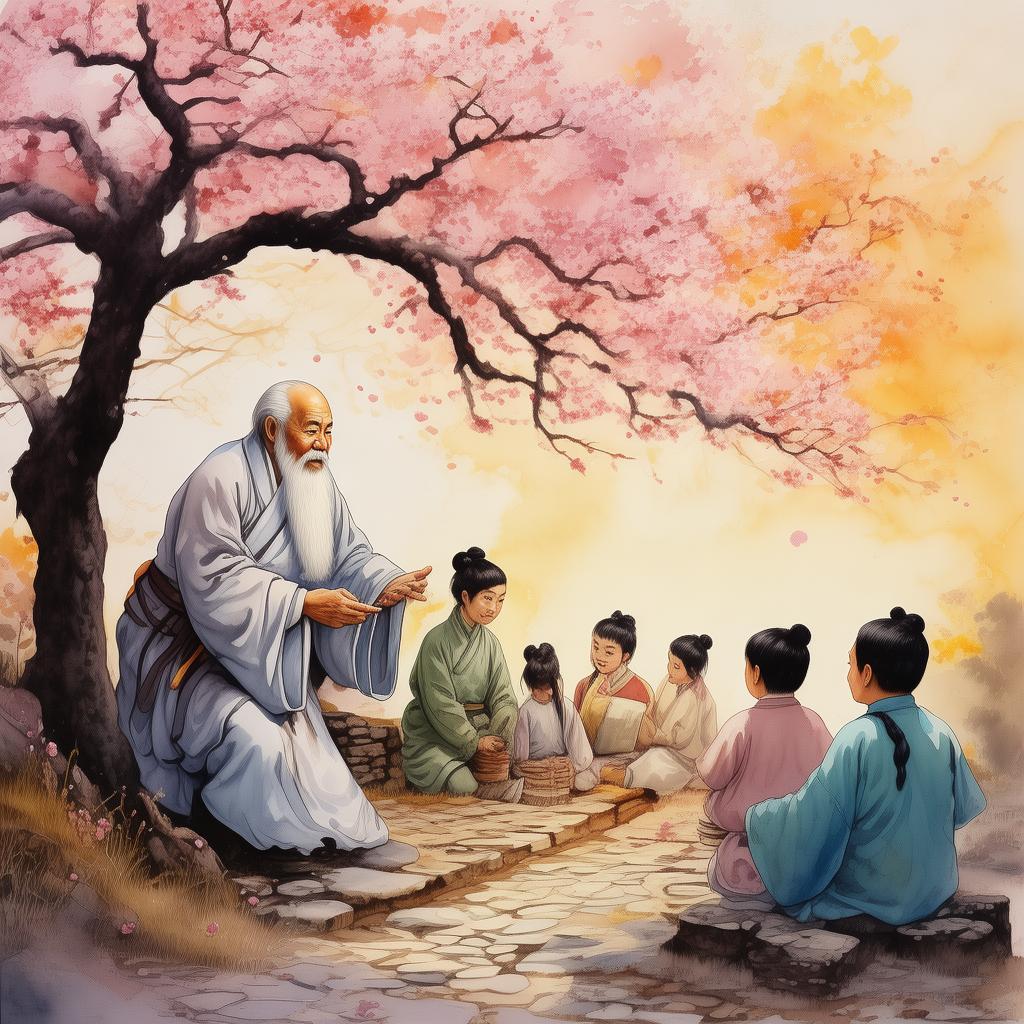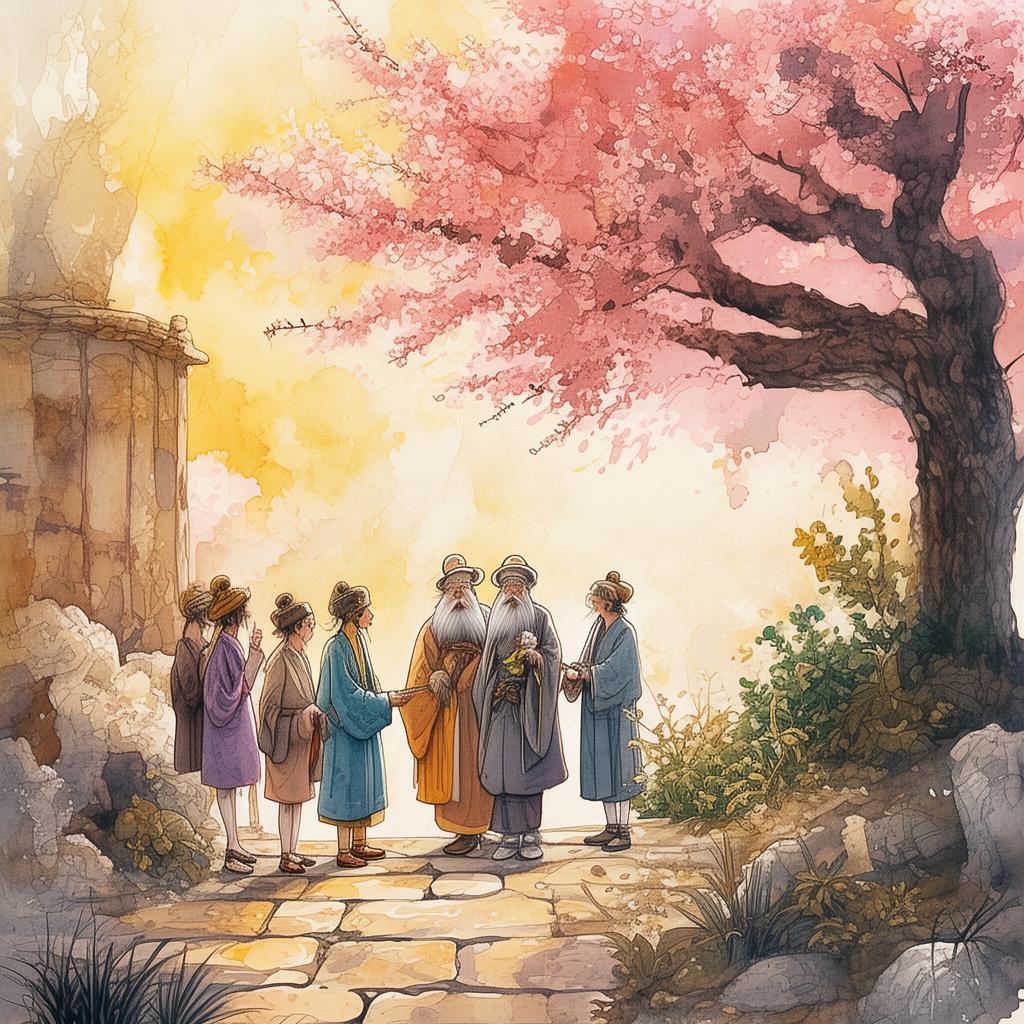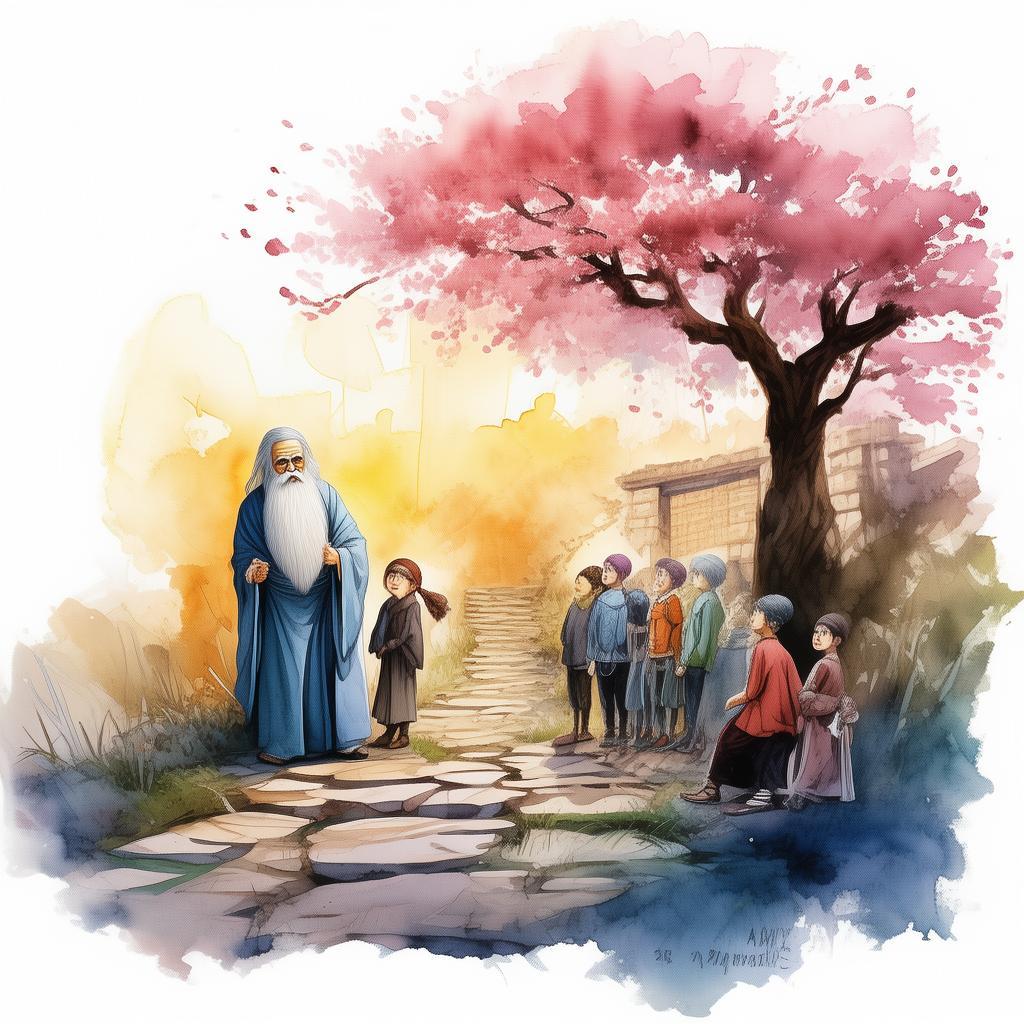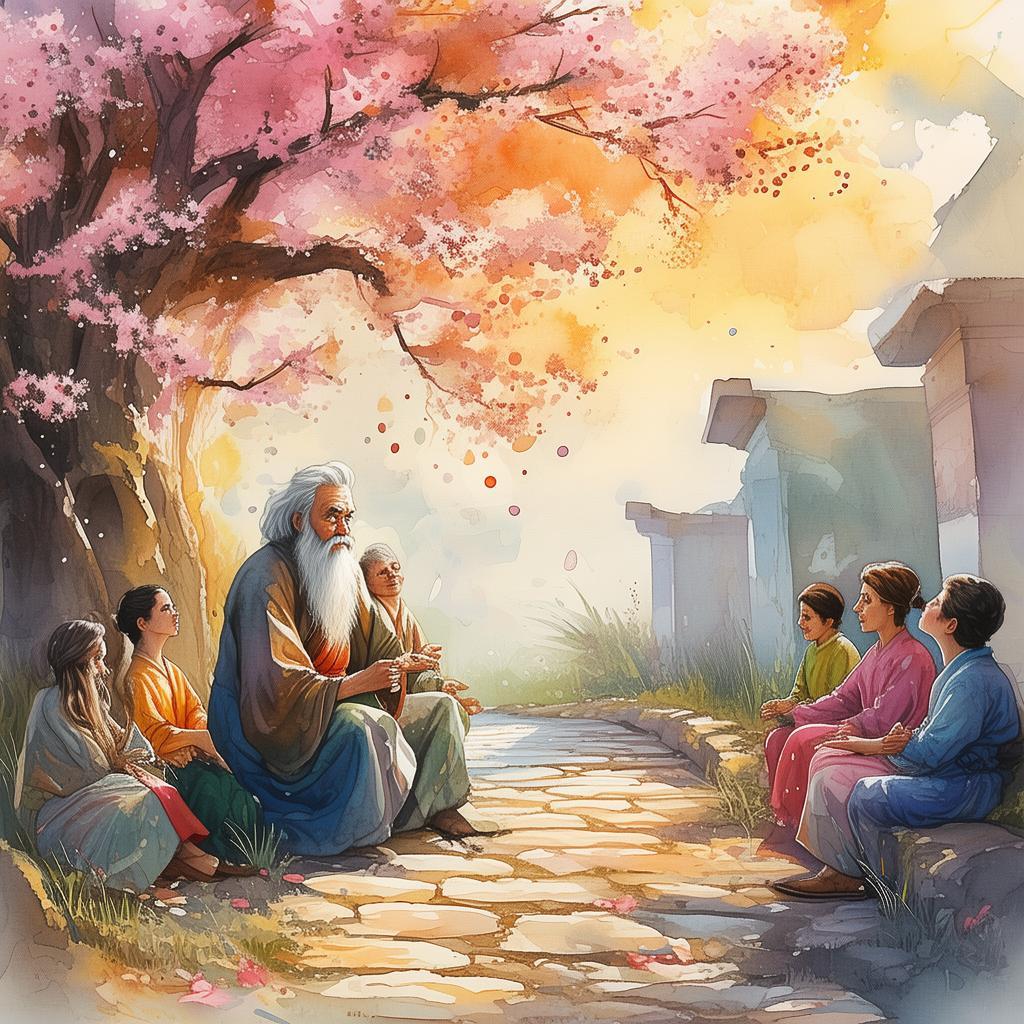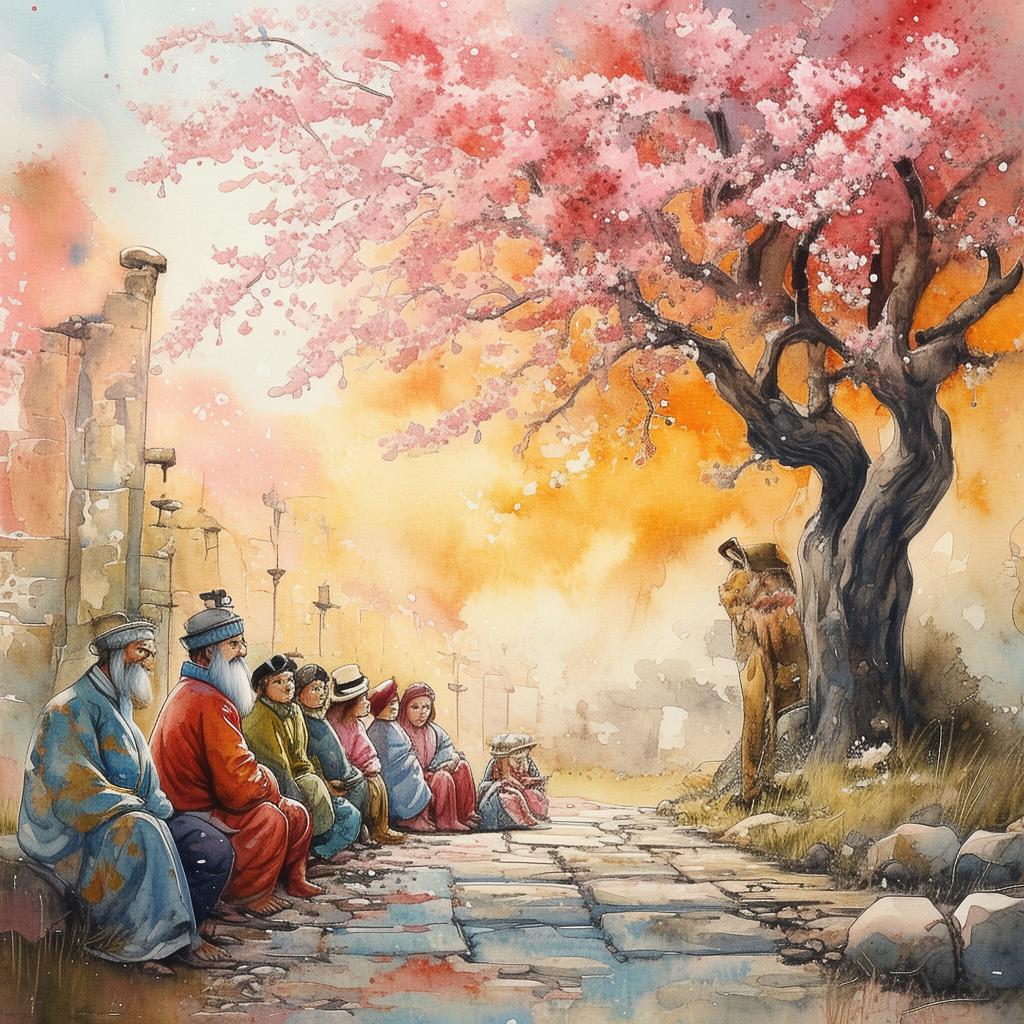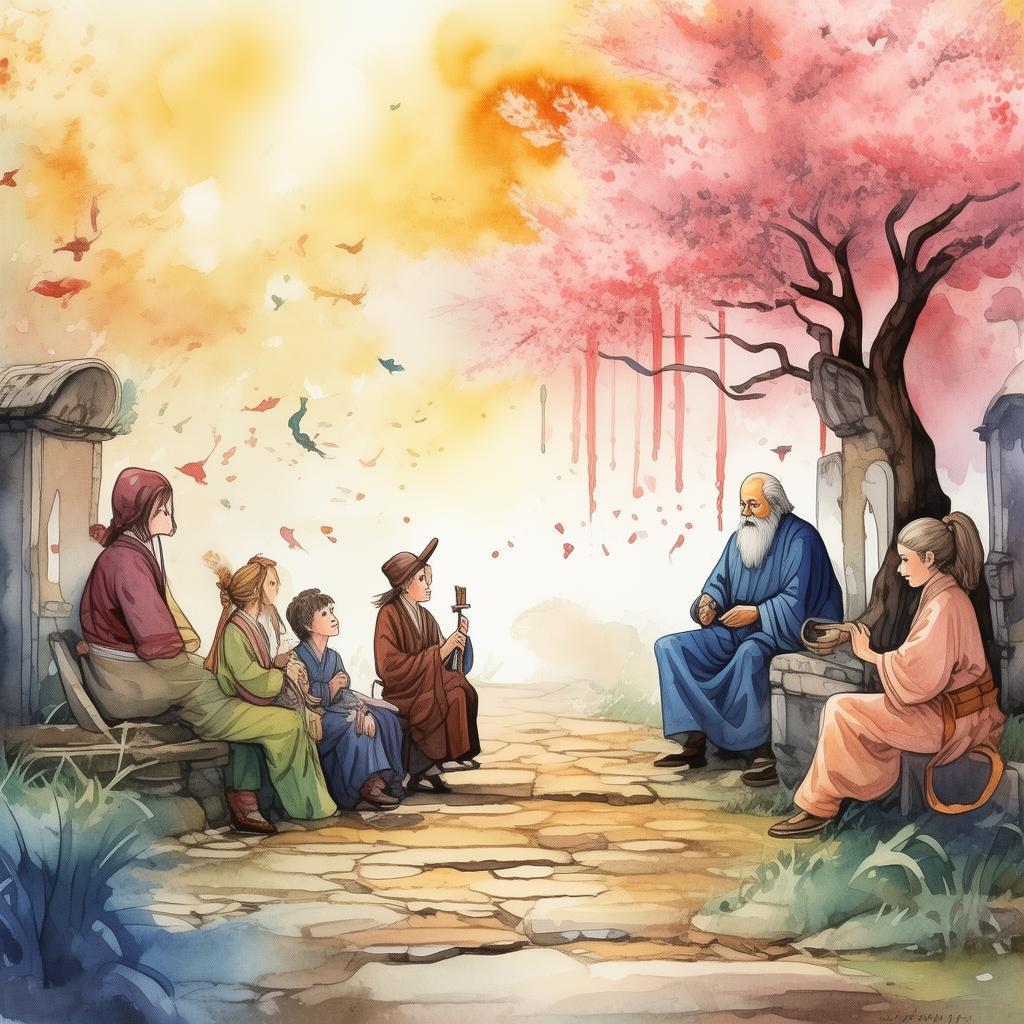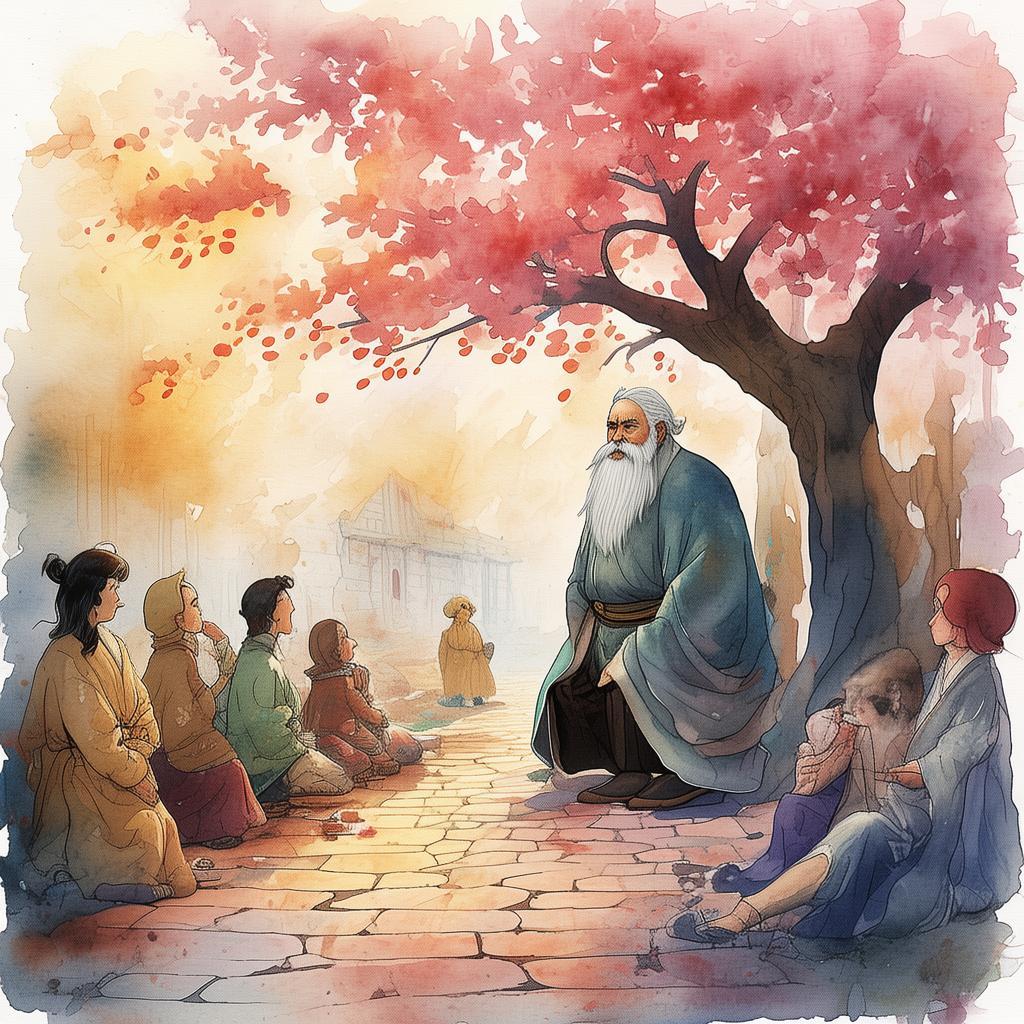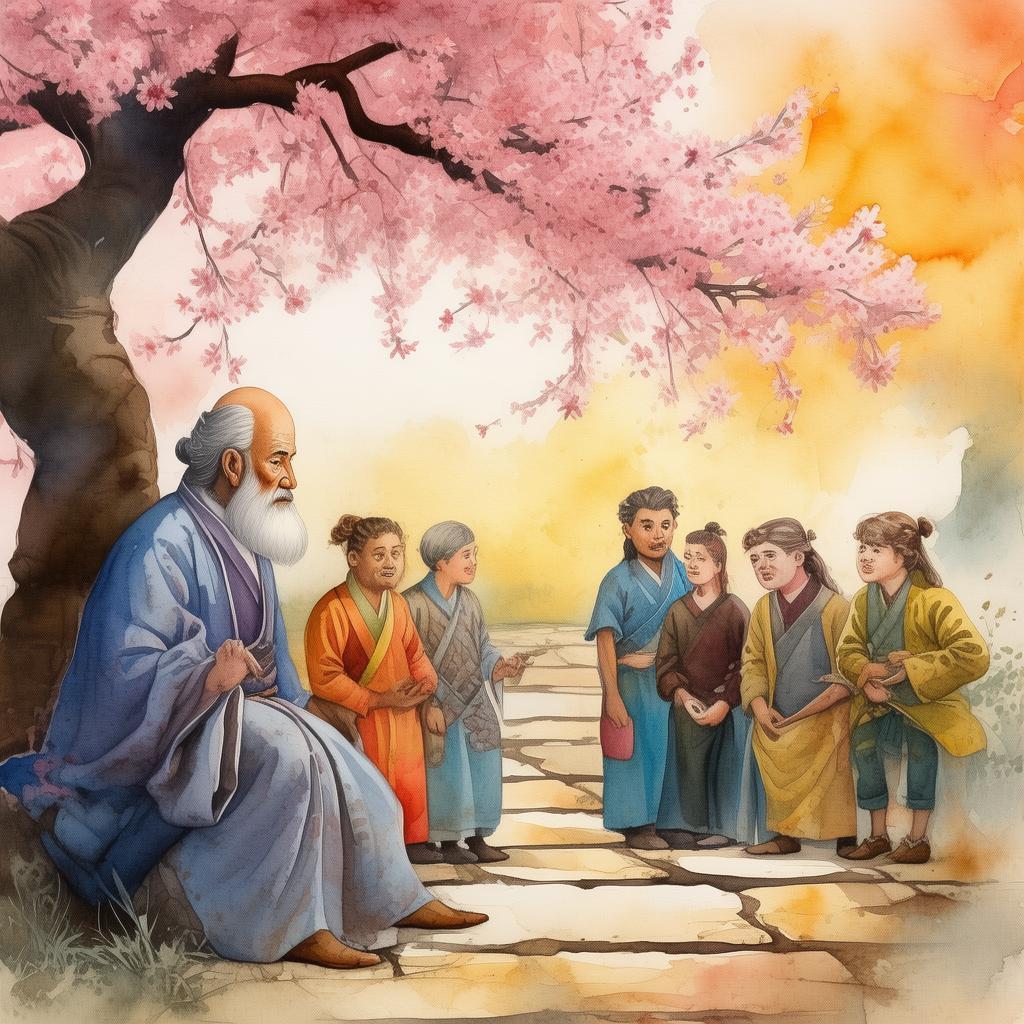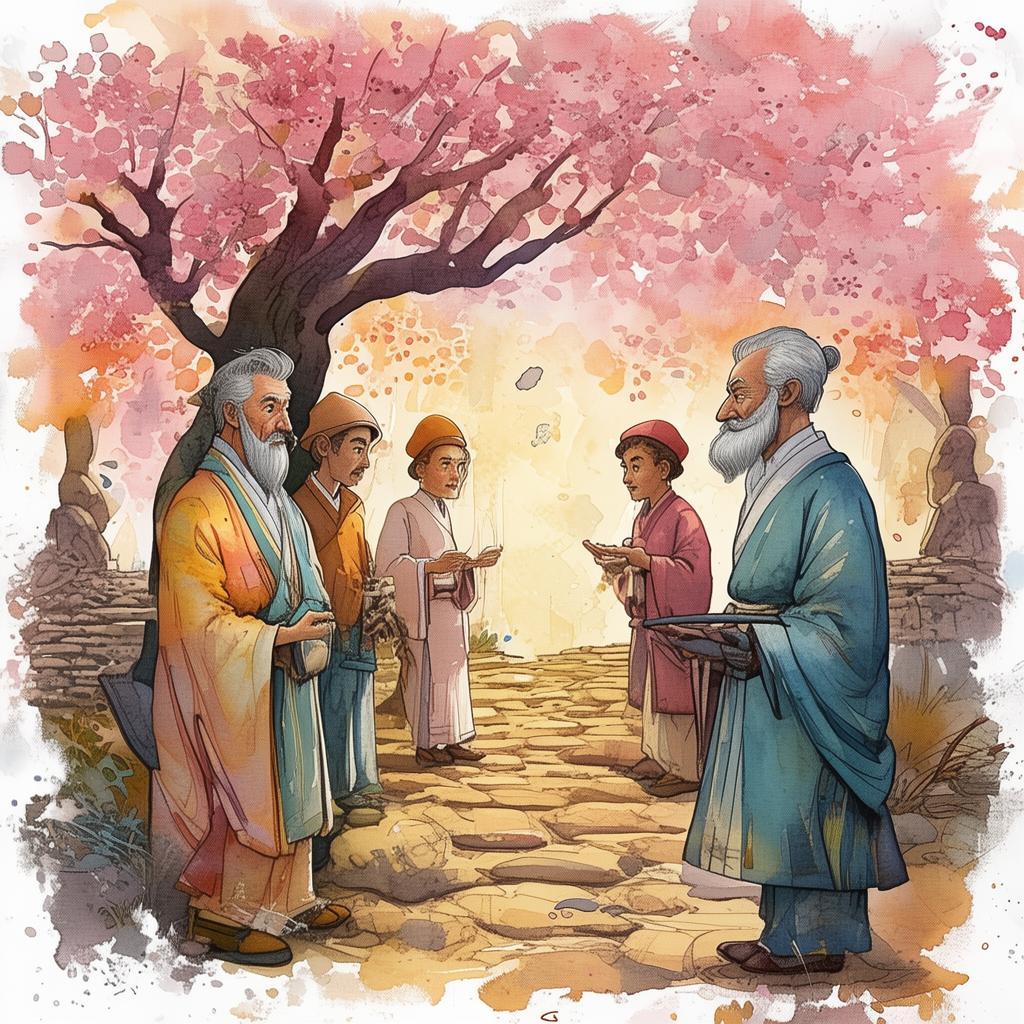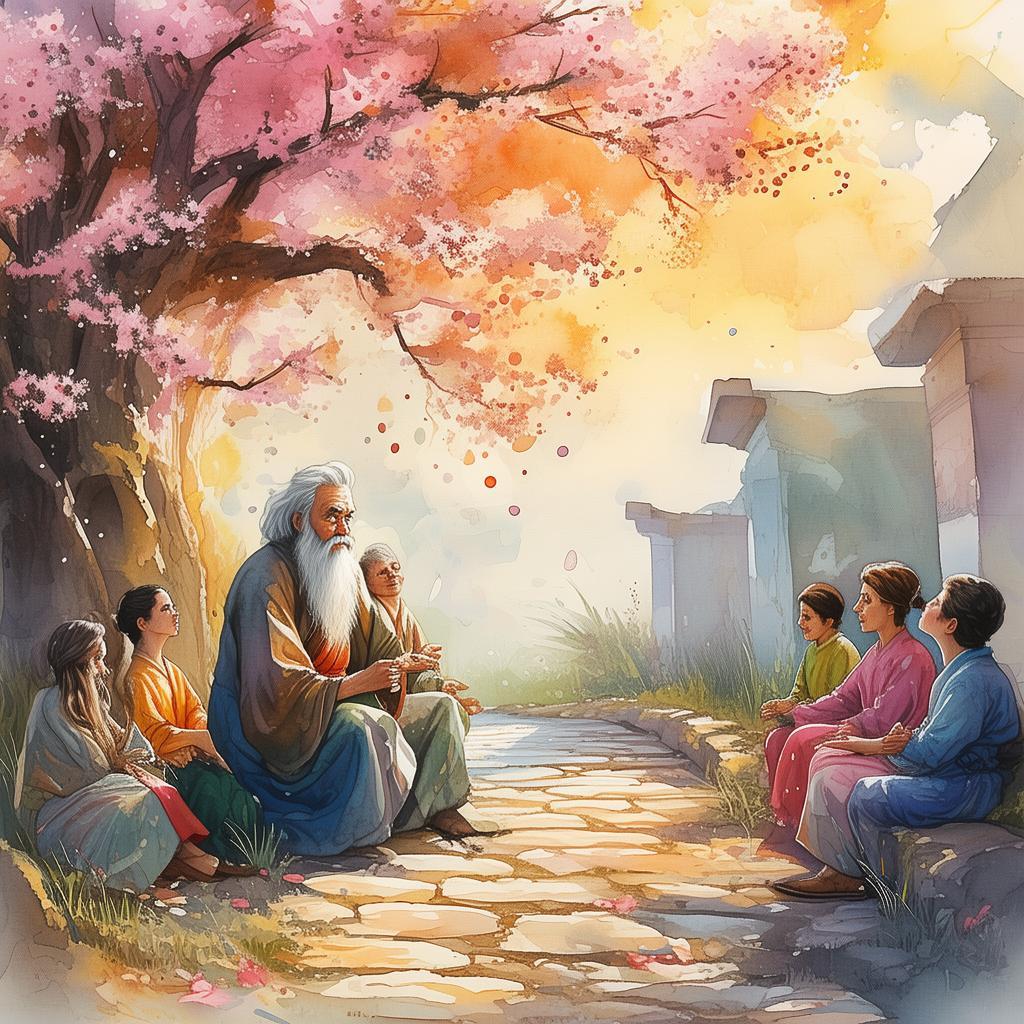The Timekeeper's Dilemma: A Tale of Fated Moments
In the heart of an ancient city, where the whispers of time seemed to echo through the cobblestone streets, there lived a man known only as the Timekeeper. His name was forgotten, but his work was revered. The Timekeeper was the guardian of the city's chronicles, a keeper of proverbs that spanned the ages. His task was to ensure that the wisdom of the past would not fade, that the lessons learned by generations would be remembered.
The Timekeeper's chamber was a labyrinth of scrolls, each containing a proverb that had shaped the city's history. It was here that he spent his days, interpreting the proverbs, weaving them into the fabric of the city's future. Yet, even in the midst of this profound work, he felt a void—a sense that the true meaning of time was yet to be revealed.
One day, as the sun dipped below the horizon, casting long shadows across the Timekeeper's chamber, a young girl named Li stumbled into his life. She was searching for her missing mother, a quest that led her to the Timekeeper's door. The Timekeeper, moved by her plight, agreed to help, but not without a condition. He would reveal to her the true nature of time and the weight of her choices, using the proverbs as his guide.
The Timekeeper began his tale with the proverb, "A stitch in time saves nine." He explained that this was more than a saying about being prompt; it was a lesson about the power of timely action. He showed Li how every moment held the potential to change the course of one's life, and that neglecting to act in the present could lead to dire consequences in the future.

As days turned into weeks, Li and the Timekeeper journeyed through time together, each proverb shedding light on their quest. "The early bird catches the worm" became a metaphor for the value of preparation and hard work. "Look before you leap" taught them the importance of caution and foresight.
One fated moment arrived when Li found herself at a crossroads. Her mother had been captured by a notorious bandit, and she was torn between seeking help from the local guards or taking matters into her own hands. The Timekeeper, understanding her internal struggle, turned to the proverb, "Better to be feared than loved, if you cannot be both."
Li, inspired by the Timekeeper's words, chose the path of bravery and faced the bandit alone. She defeated him, but not without injury. The Timekeeper, seeing her determination, revealed another proverb: "He who laughs last, laughs longest." This taught her that perseverance would ultimately bring her success.
The journey continued, with the Timekeeper and Li uncovering proverbs that spoke of loyalty, "A friend in need is a friend indeed," and sacrifice, "For the sake of the future, one must sometimes sacrifice the present." As they delved deeper into the chronicles, they discovered that the past, present, and future were interconnected, each moment a thread in the tapestry of time.
The final fated moment arrived when Li and the Timekeeper stood before the ancient city's highest tower, the site of her mother's capture. The Timekeeper, with a knowing smile, recited the proverb, "The journey of a thousand miles begins with a single step." He handed Li a scroll, inscribed with the proverbs that had guided them.
As Li reached the top of the tower, she found her mother, safe and sound. The Timekeeper, now a silent observer, watched as the two women embraced. In that moment, he realized that the true power of the proverbs was not in their words alone, but in the actions they inspired.
The Timekeeper's Dilemma: A Tale of Fated Moments ended with a profound revelation. Time was not a linear path but a series of interconnected moments, each one a choice, each one a lesson. And in the end, it was not the timekeeper who held the key to the past, but the courage and wisdom of those who lived in the present.
As the sun rose the next morning, casting a golden glow over the ancient city, the Timekeeper returned to his chamber, his task of keeping the chronicles complete. But he knew that the true legacy of the proverbs was not in the scrolls, but in the hearts of those who lived by them. And with that, he smiled, knowing that the wisdom of time would endure.
✨ Original Statement ✨
All articles published on this website (including but not limited to text, images, videos, and other content) are original or authorized for reposting and are protected by relevant laws. Without the explicit written permission of this website, no individual or organization may copy, modify, repost, or use the content for commercial purposes.
If you need to quote or cooperate, please contact this site for authorization. We reserve the right to pursue legal responsibility for any unauthorized use.
Hereby declared.
